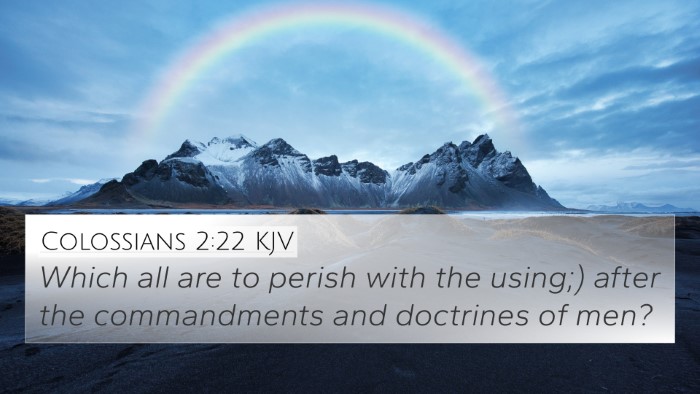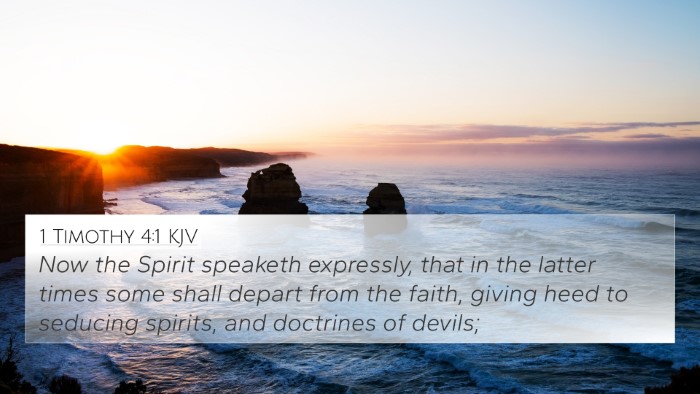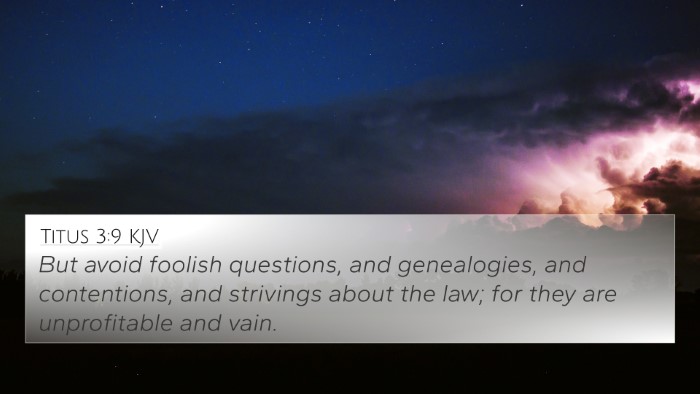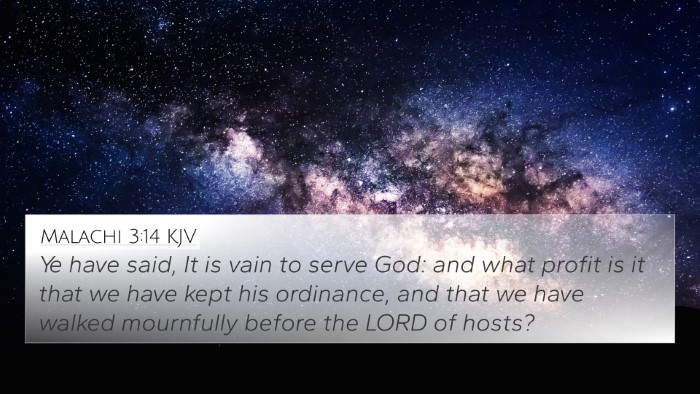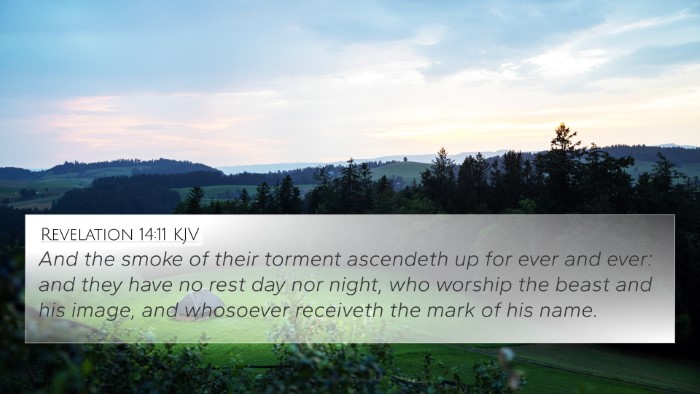Meaning and Interpretation of Mark 7:7
Mark 7:7 states: "Howbeit in vain do they worship me, teaching for doctrines the commandments of men." This verse is a profound teaching about the nature of true worship and the dangers of adhering to human traditions over divine commandments.
Analysis of Mark 7:7
In examining this verse, we find multiple layers of meaning and application:
- Worship in Vain: The phrase "in vain" indicates that the worship offered is unproductive and unacceptable in the eyes of God. Matthew Henry notes that true worship must be grounded in truth and spirit, aligning with God's commandments rather than human traditions.
- Teaching for Doctrines: This signifies the dangerous practice of substituting God's truth with human teachings. Albert Barnes emphasizes that this leads to a distorted understanding of God's will, often resulting in practices that are contrary to scripture.
- Commandments of Men: Adam Clarke elaborates that the commandments of men refer to the added traditions and regulations that can overshadow the genuine commands of God, leading believers astray from the essentials of faith.
Cross-Referencing Related Scriptures
Understanding Mark 7:7 becomes clearer when cross-referencing it with other significant scriptures:
- Isaiah 29:13: This Old Testament verse reinforces the idea that worship and obedience can be hypocritical if not sincere.
- Matthew 15:9: A parallel passage where Jesus similarly criticizes the Pharisees for their tradition-based worship.
- Colossians 2:8: Paul warns against philosophy and empty deceit based on human tradition.
- Galatians 1:10: The importance of pleasing God over men is highlighted, cautioning against compromising divine truths.
- Mark 12:30-31: Jesus emphasizes the greatest commandments, contrasting divine instruction with human additions.
- 2 Timothy 4:3-4: Paul discusses the trend of turning away from sound doctrine to follow teachings that satisfy personal desires.
- James 1:26: This verse warns that if anyone thinks they are religious but does not bridle their tongue, their religion is worthless.
Key Insights from Public Domain Commentaries
Let us summarize insights drawn from several public domain commentaries:
- Matthew Henry: Emphasizes the significance of worshiping God sincerely, aligning practices with the true spirit of the laws He has given.
- Albert Barnes: Notes that human traditions can lead believers astray, stressing the need for sound doctrine deeply rooted in Scripture.
- Adam Clarke: Highlights the danger of adhering to human laws over God's commandments, warning believers of the spiritual consequences.
Thematic Connections
Mark 7:7 explores profound themes in biblical theology:
- True Worship: The need for authenticity in our relationship with God is paramount.
- Legalism vs. Grace: Highlights the conflict between the law of Moses and the grace offered through Christ.
- Tradition vs. Revelation: The challenge of discerning between human-made traditions and divine revelation.
Practical Applications
This verse encourages readers to consider the following:
- Sincerity in Worship: Engage in genuine worship that seeks God’s approval over human applause.
- Study of Scripture: Regularly delve into the Word of God to understand the difference between divine truth and human custom.
- Examine Our Practices: Reflect on personal and communal worship practices to ensure they align with God's intention.
Conclusion
Mark 7:7 serves as a solemn reminder that our worship must be guided by the truths of Scripture rather than the commandments of men. Through careful study and cross-referencing other biblical texts, we can deepen our understanding and ensure that our practices reflect a true relationship with God.





